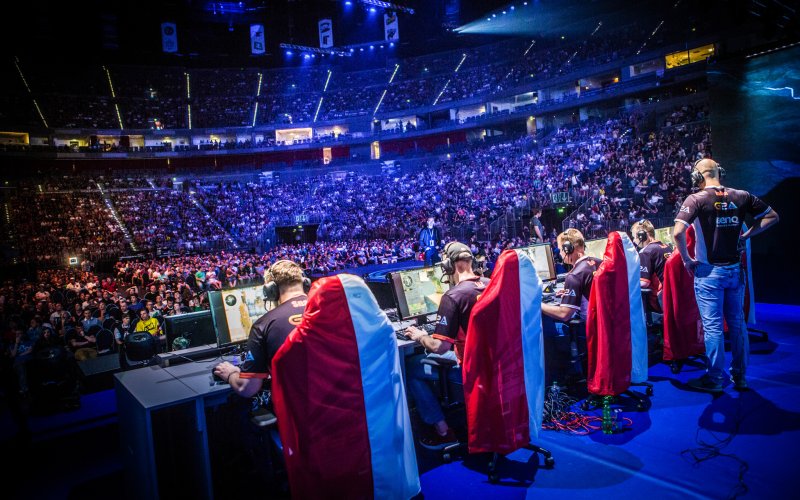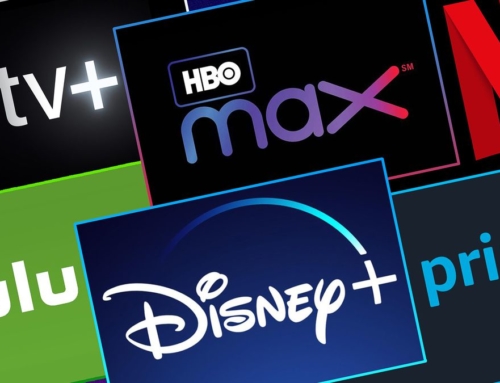
In its broadest sense, eSports refers to video games played in a competitive manner. eSports are often played in the form of multiplayer video games, although these games span a wide variety of types and interests. The most popular game genres associated with eSports are real-time strategy (RTS), first-person shooters (FPS), fighting, and multiplayer online battle arena (MOBA) games. In recent years, tournaments such as the League of Legends World Championship, The International and the Evolution Championship Series have garnered international acclaim and popularity.
eSports found momentum in the early 2000s as online video games gained prominence amidst a sudden surge in the availability of high-speed internet connections worldwide. It was at this time that amateur gamers went professional, as spectatorship in the sport grew. This fast rise in popularity is thought to have happened largely due to the mass building of broadband internet networks in South Korea in the early 2000s. The country was also host to a large number of internet cafés at the time, which prompted people to partake in gameplay in a community setting. In the year 2000, the Ministry of Culture, Sports and Tourism founded the Korean eSports Association to help promote and regulate the quickly growing sport.
Over the next decade, the eSports community grew internationally both in players and in viewers. With this, more and more revenue started pouring into what was becoming recognized as a global industry. Whereas there were approximately 10 popular eSports tournaments in the year 2000, there were 260 by the year 2010.
As eSports as an industry has grown in popularity in recent years, leagues have begun organizing in ways similar to traditional sports leagues. Players are paid salaries, while some are even drafted to teams depending on their skill and popularity. Many of the leagues offer multi-million dollar prizes in their championship games. eSports has become a lucrative and fast-growing industry. As of 2017, the eSports industry held an estimated value of $765 million. That number grew to $1.5 billion when the income from investments was included in the valuation. The amount of revenue being made has caught the eye of the sports industry at large, with established sports leagues and franchises getting involved and looking to cash in.
The NBA has started a league focused on its flagship video game, NBA2K. Major League Soccer (MLS) has also recently launched its own eSports league. Furthermore, prominent brands such as Mercedes, Toyota and Coke have all taken a stake in the industry as well, largely as advertising and sponsorship partners at eSports events and competitions.
Recently, 22,000 people descended upon the Barclays Center in Brooklyn for the Overwatch League Grand Finals. Those 22,000 people paid $60 USD for a ticket to watch people play video games. When those tickets sold out, resale sites were listing tickets for upwards of $300 USD.A substantial ticket price has become the norm for large-scale eSports events such as this one. These big ticket events have not only started to fill stadiums, but they’ve also taken over traditional television networks as well. Fans who aren’t quick enough to snag tickets to these events are often able to stream the competitions on Twitch and YouTube or watch live on mainstream networks such as ESPN, Disney, and ABC.
What was once mocked as nothing more than a group of people playing video games has grown into an industry that is finding it difficult to keep up with the rapid pace it’s moving at. As it stands, eSports has grown into a billion-dollar industry that now has prominent affiliates involved in the form of major sports leagues, brands, and television networks. Whereas in the early 2000s, eSports championship games were low-key and uninvolved, the League of Legends World Championship brought in 35 million viewers worldwide in 2015. The industry is excelling at such a rate that in 2016, the World eSports Association was launched. This organization was established to act as a governing body for eSports competitions worldwide – similar to the way in which FIFA governs soccer competitions. Although eSports is still subject to ridicule and scorn from sports enthusiasts and purists, there is currently talk that eSports could soon be included in upcoming Olympic games. There is no denying that eSports has taken the sports industry by storm. Although this may have come as a surprise to many, what may be more surprising is that the world of virtual games is showing no signs of slowing down any time soon.










